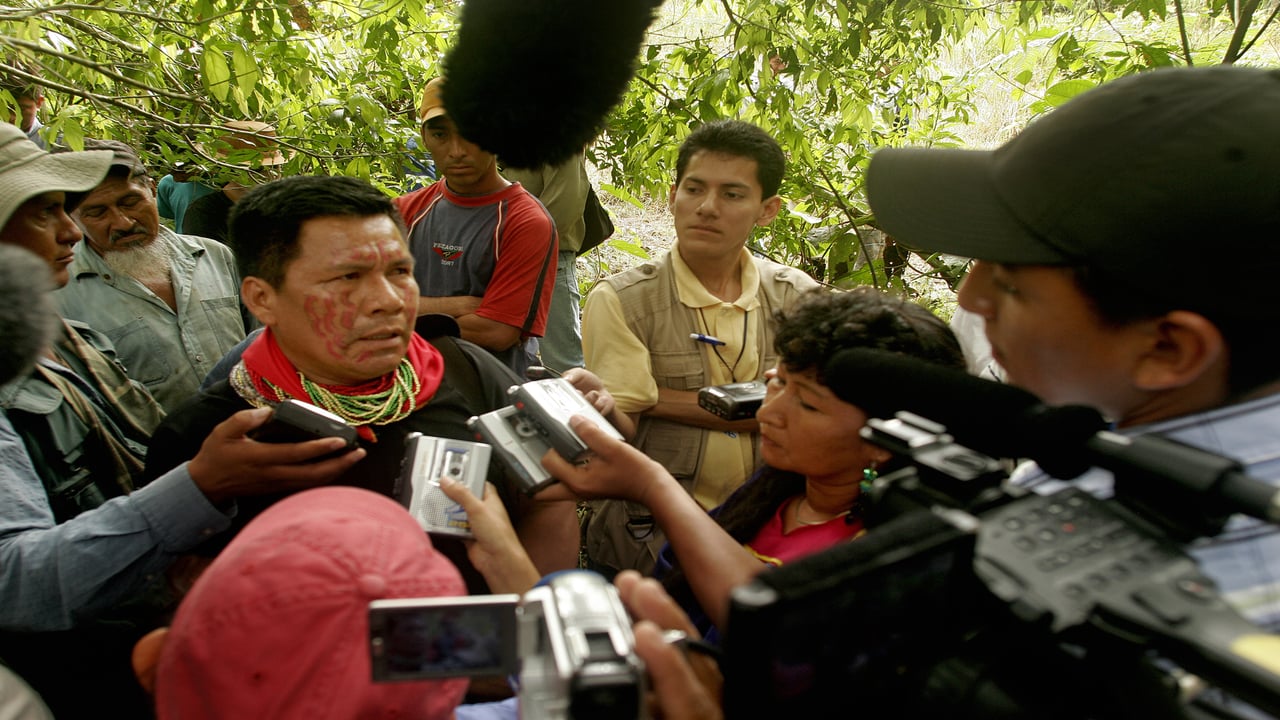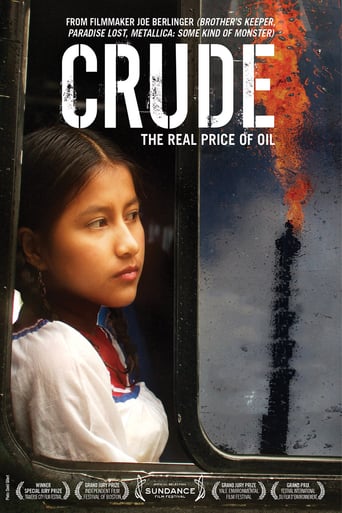

From the March 4 ruling against Stephen Donziger and others by U.S. District Court Judge Lewis Kaplan. (LAP means Lago Agrio plaintiffs):The documentary film called Crude was made because Donziger in 2005 recruited film maker Joe Berlinger to portray the LAPs' case against Chevron. The film featured Donziger quite prominently. Donziger provided Berlinger, cameraman Mike Bonfiglio, and other crew members expansive access to himself, his team and some of its activities for nearly the next three years. The ultimate product, Crude, first was released in January 2009.The Crude team's independence from Donziger and the LAPs' lawyers – to the extent there was any at all – was limited. For one thing, Donziger recruited the film's main source of funding: his former classmate Russell DeLeon. As Donziger wrote: "Russ is funding the case. Russ is funding the movie. And Russ wants to fund more cases and more movies." Through his creation and sole ownership of a production company called Crude Investment, Inc., Deleon contributed approximately 60 percent of the film's total funding.Nonetheless, just as they had done with Cabrera, Donziger and his team attempted to create the appearance that the film was independent, while they controlled or influenced its content from behind the scenes.
... View MoreThis documentary about the Chevron-Texaso case and the struggle of a small law company trying to win a lawsuit against this oil giant and force them to take responsibility for the ecologic catastrophe they left behind when drilling oil in the Ecuador Amazon rainforest, leaving behind open or poorly sanitized oil pit holes, near or on top of – yes, you heard me, on top of – which people live and suffer from severe illnesses such as cancer, leukemia, or severe skin problems as a result.Amazing documentary, amazing story, which has so much reminded me of the courageous fight of David against Goliath combined with a sprinkle of Erin Brockowich. Amazing how a few can move mountains to help total strangers at a country far away from their ordinary world...
... View MoreIf you have not seen CRUDE yet, get to the closest theater. It is a near perfect documentary of an incredible story.Filmmaker Joe Berlinger leads us through a tale that combines a legal thriller, an environmental outrage, a cultural crisis, a buddy pic, and even pulls in some rock you out of your seats concert footage. Rarely does any film have so many dimensions delivered in such an effective and riveting package.Following the crusade of an Ecuadorian lawsuit against Chevron for 2 of its 14 years, we are guided by the oddest legal couple you can imagine. Pablo the young, fresh and determined Ecuadorian hero seems at times too young and too nice for the fight he is in. That is until you hear him passionately address the issues of the case. He embodies innocence and tenacity in a very Jimmy Stewart ala 'Mr. Smith Goes to Washington', style. His partner is Steven, a big, bold, brash New York lawyer whose bombastic style is as entertaining as it is effective. We are brought close in to the tragic pollution of a once pristine rainforest, and are moved to tears at the plight of the beautiful ancient peoples devastated by same. From the eco/cultural travesty, to the arcane workings of the Ecuadorian legal system, to the power and ruthlessness of a major multinational corporation, there is so much provocative material in this film that days after the showing, I am still processing, and discussing it.Berlinger's gift in this movie is that he does not deliver a conclusion to the audience, rather he presents both sides of the story and provokes the viewer to real thought on the issues. While it is clear that he sees a moral imperative that Chevron accept responsibility and that the people get help, Berlinger does not beat you over the head with a message movie. He makes you ponder the complexities and own your own opinion. If he ever stops making films, which I hope he does not, he would make a great college professor.Watch for this excellent film to be in the mix at Oscar time.
... View MoreIn Joe Berlinger's film Crude, we're privy to a situation that has spiraled out of control and how a battle is waging between lawyers on two sides. On one side are the Ecuadorians who in 1993 filed a lawsuit against Texaco (now Chevron) for their hazardous practices while drilling for oil by spilling all over (ultimately far more than Exxon Valdez) and contaminating the water that the locals drank and bathed in. They sought (still seek, actually) just some responsibility, something on their end that "hey, we screwed up, we'll clean it up," and eventually in recent years given representation by Pablo Fajardo, a tough Ecuadorian lawyer, and some American back-up lawyers.On the other side, of course, are the corporate lawyers for Chevron, who claim two contradictory things: there's the Chevron environment scientist who says that there is no contamination, the people are getting cancer from other things, no sewage treatment, people get sick all the time, etc, don't blame us - and there's the local Chevron Ecuadorian lawyers who say, 'yeah, there is contamination, but not by us, look at Petro-Ecuador, who came after we left, it's all them.' It comes down to a blame game that, finally, after years of struggle, gets to a trial level in Ecuador. But this, as we see in Crude, has its problems too - not least of which from corruption in the law system, and judge(s) inundated with information to process from the case.What makes Crude so powerful a document, and an indictment of a mighty beast like an oil corporation that is in fact one of the largest corporations in the world, is that Berlinger doesn't need to amp up the agitprop. We see the Chevron scientist or lawyers try their best to describe how things aren't bad, or so bad, or that it's not their fault, and all Berlinger has to do is show the local Ecuadorians living right by the water, too poor to move or to be able to get enough money form their livestock who die off immediately (and asking "where are all the fish" answers itself), the mother who has two children lost to cancer, and shots, very straightforward, of, yes, contaminated oil wells and ponds and places that no one should have to put up with. Berlinger gets his best material from these horrid images, set against the backdrop of an otherwise gorgeous Amazon jungle and rain-forest.It's also a gripping legal drama, and one that we see gains some public-attention traction following a Vanity Fair article in their 'Green Issue' and a subsequent interest from Trudie Styler and her husband Sting (more so Styler, who goes to Ecuador and sees the anguish of the people and the sites of the oil spills). But one may be filled with a possibly cynical sense of dread; for all of the hope one may have in this case, that David will for once beat Goliath and that the things the American lawyer are saying will come true, it's real life and not the movies (albeit as a movie here) and it's nail-biting to see how it will turn out, that despite all of the attention and media buzz thanks to Sting, it won't work out for the Ecuadorians because, well, it's a damn oil monster they're up against.As it turns out, it's really a credit to Berlinger and his crew that he can present such a story with a clear eye and head and, indeed, be fair on both sides (granted, there is only so much access an oil company in litigation will give to a low-budget documentarian), and lets the audience see what the case is all about. And, perhaps expectedly, the ultimate bittersweet note by the end is that of a double-sided coin: an independent investigator may find overwhelming proof of contamination and the need for compensation for the victims and people and lands... but the case still needs to end, and as it stands, the investigation is ongoing. It's a harrowing saga of human rights.
... View More